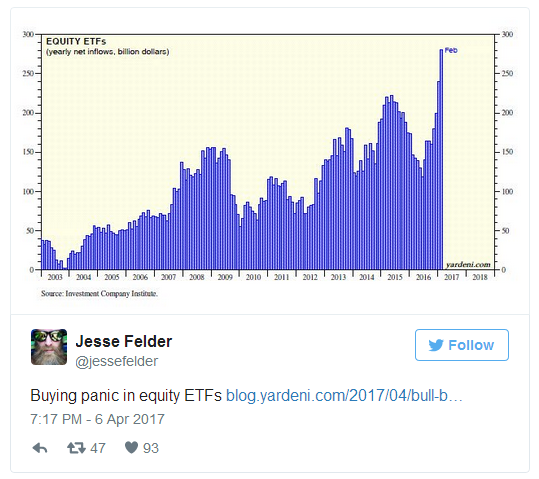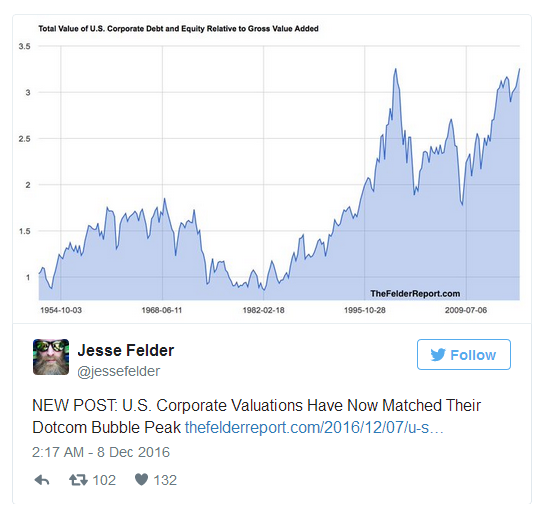I have argued that “passive investing” is an oxymoron because it denies precisely that which defines an investment: active analysis. Proponents of the strategy don’t seem worried about this inconsistency, though. This is likely due to the fact that most of them believe the market to be, to a great extent, efficient. From Wikipedia:
Efficient-market hypothesis (EMH) is a theory in financial economics that states that an asset’s prices fully reflect all available information. A direct implication is that it is impossible to “beat the market” consistently on a risk-adjusted basis since market prices should only react to new information or changes in discount rates (the latter may be predictable or unpredictable).
I don’t think anyone really believes this to be totally accurate anymore. The multiple bubbles we have witnessed over the past couple of decades have served as a real time refutation of the hypothesis. Still, some obviously believe it to be largely accurate.
In fact, I would argue that the massive shift to passive in recent years is all the evidence we need to make this assertion. Investors clearly believe that simply buying the indexes, without any regard for price or valuation, will allow them to capture the economic gains of American business over the coming years. To the extent the markets are, indeed, efficient, this assumption would hold true.
The trouble with this idea today, however, is the fact that the more investors, inspired by EMH, embrace a passive approach the more inefficient the markets become. You see, the EMH rests upon the simple assumption that investors, as a group, are actually investing in the traditional sense.
The markets are only capable of being efficient to the extent that investors, as a group, are efficient in their analytical processes and in how they apply them to the markets. Because more investors have abandoned price-sensitive strategies for price-insensitive ones than ever before the markets have also become less efficient than ever before.
If you pushed indexation to the very logicial extreme, you would get proposterous results."- Charlie Munger
We may not have reached the logical extreme Charlie Munger refers to just yet but we are certainly much closer to it than we were 20 years ago when he first uttered the phrase. One of the most preposterous results of this phenomenon is the fact that investors believe themselves to be acting rationally and efficiently in buying corporate securities that have never been more highly valued.
What is most preposterous, though, is that investors are ignoring the blindingly obvious fact that the incredible popularity of their passive investing strategies has totally undermined their most basic assumption.

Only during a financial mania could investors ever embrace such preposterous rationale as we are seeing today in passive investing. “Euphoria” and “lack of inhibition,” part of the definition of a mania, are prerequisites for these sorts of episodes.
We have seen it before and recently, too. History is certainly rhyming if not repeating. Ultimately, investors will again learn the hard way that extremely inefficient markets, sometimes called bubbles, created by mass herding and the suspension of reason are not something you really wish to tie your fortunes to.
